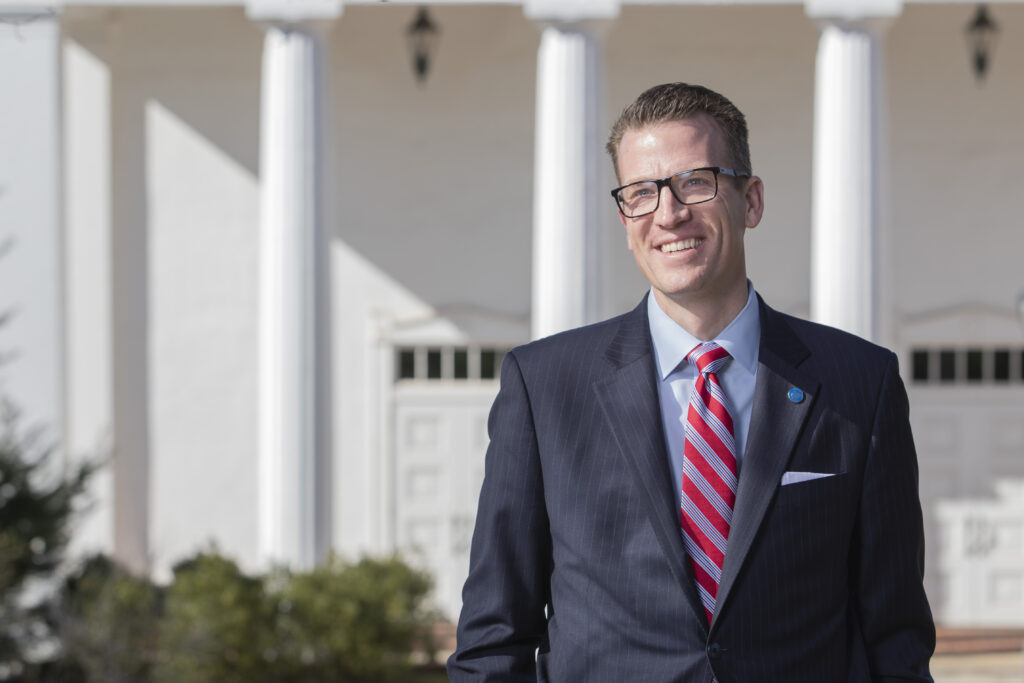
UWG President Brendan Kelly remains committed to the needs of the UWG students and hopes to move forward in a positive direction after a general faculty vote of no confidence in Kelly’s leadership passed in a 263-129 majority Monday, Nov. 9.
The vote was intended to get the attention of the University System of Georgia’s (USG) Board of Regents who hired Kelly. USG holds the authority of assigning and firing university presidents in Georgia, including Kelly. However, USG and its Chancellor Steve Wrigley put out a statement as soon as they received the results of the vote saying they “wholeheartedly” support Kelly and his administration and are “confident” he remains focused on the students and the mission for the university.
“I came to the University of West Georgia at the invitation of the Board of Regents because I am incredibly optimistic about where this university goes and the type of experience we can provide students into the 21st century,” said Kelly. “But that’s going to require us to be different. We have to grow and evolve, and that’s tough.”
According to Chair of the Senate Dan Williams, there is one of two ways the president could react to the no confidence resolution. He could either meet with faculty and agree to a specific set of requests, or he could ignore the vote. Williams says he would welcome conversations between the president and faculty, but the decision is ultimately up to Kelly.
“I try to be responsive to that [the vote],” said Kelly. “That can’t take away from where we have to go as a university, but it is taken into consideration as we move forward as a university. I’ve got to find better ways to be a leader everyday—not just today—all of the time.”
USG and other governing bodies measure the success of both the institution and Kelly, not based on feelings but based on outcomes. Kelly has to look at the data and make the decisions necessary for the institution to move forward.
“How people feel matters to me,” said Kelly. “It matters to our organization. It matters to our daily work together. It matters to our atmosphere and our environment, but our success and failure as an institution is based on outcomes.”
Some suggest the reason Kelly was met with so much resistance from faculty is because of the situation he entered when he became president in March. The same month COVID-19 was declared a pandemic. Kelly has talked with many colleagues and presidents at other universities who have had to make similarly unpleasant decisions at their various institutions.
“We are riding the waves of change, and we’re not the ones creating the waves—we are the ones who are riding them,” said Kelly. “The pandemic is changing. Our demographics are changing. The state budget has changed, and the economy has changed.”
Another concern that students have is how the no confidence vote impacts the reputation of the university and how it affects prospective and current students at UWG. A vote of this nature indicates a division between faculty and administration, which has potential to bring down an institution.
“There has always been a dialogue between faculties and administrations for years and years and years,” said Kelly. “That’s nothing new.
“Nothing should take away from our number one priority which is the holistic experience of students,” continued Kelly. “The types of disagreements that exist between different groups in our workforce and the administration are to be settled in the confines of those relationships in my view.”
Kelly says he is hopeful for UWG’s future as the university will welcome its new permanent Provost Dr. Jon Preston in December. He said he is thankful for interim Provost Dr. David Jenks service for the past 18 months, but serving in that position as interim can be difficult. Someone holding that position permanently is essential to the university growing and moving in a positive direction.
“I could not be more thrilled,” said Kelly. “That’s a key position because that’s the person who is the senior vice president over academic affairs.
“All of the deans and chairs and all of the faculties report up to that individual,” continued Kelly. “That’s a really key person to have at the university to make certain that the communication lines between administration and faculty are as open as possible.”
